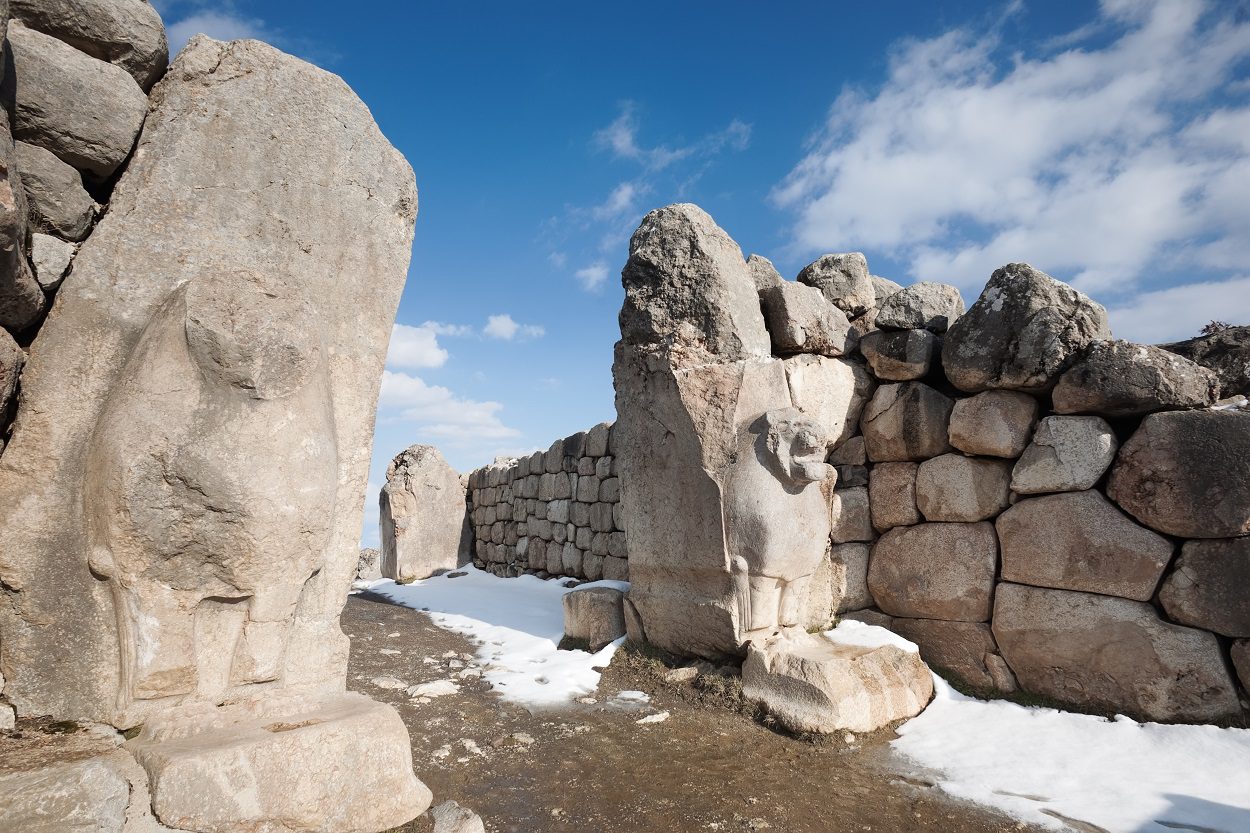Archaeologists conducting excavations at Boğazköy-Hattusha have discovered a previously unknown Indo-European language inscribed on a cuneiform tablet.
Hattusha was the capital of the Hittite Empire, an ancient Anatolian people who established an empire covering Anatolia, northern Levant, and Upper Mesopotamia.
At its peak, the city covered an area of 444 acres, consisting of an inner and outer precinct surrounded by a course of walls that protected a population of around 40,000 to 50,000 inhabitants.
Hattusa was destroyed along with the Hittite state around 1200 BC during the Bronze Age collapse, a period that saw the collapse of many major cities and civilisations throughout the Near East, Anatolia, the Aegean region, North Africa, the Caucasus, the Balkans and the Eastern Mediterranean.
Archaeologists have been excavating Hattusha for more than 100 years, uncovering almost 30,000 clay tablets with cuneiform writing providing information Hittite history, their society, economy, and religious traditions.
Recent excavations have found a tablet containing a cultic ritual text written in Hittite in a hitherto unknown language. According to Professor Daniel Schwemer, head of the Chair of Ancient Near Eastern Studies at Julius-Maximilians-Universität (JMU) Würzburg in Germany, the text refers to a language from the land of Kalašma, an area located on the northwestern edge of the Hittite heartland.
Professor Schwemer, said: “The Hittites were uniquely interested in recording rituals in foreign languages. Such ritual texts, written by scribes of the Hittites reflect various Anatolian, Syrian, and Mesopotamian traditions and linguistic milieus. The rituals provide valuable glimpses into the little known linguistic landscapes of Late Bronze Age Anatolia, where not just Hittite was spoken.”
Being written in a newly discovered language, the Kalasmaic text is as yet largely incomprehensible. Daniel Schwemer’s colleague, Professor Elisabeth Rieken (Philipps-Universität Marburg), a specialist in ancient Anatolian languages, has confirmed that the idiom belongs to the family of Anatolian-Indo-European languages.
Header Image Credit : Shutterstock





